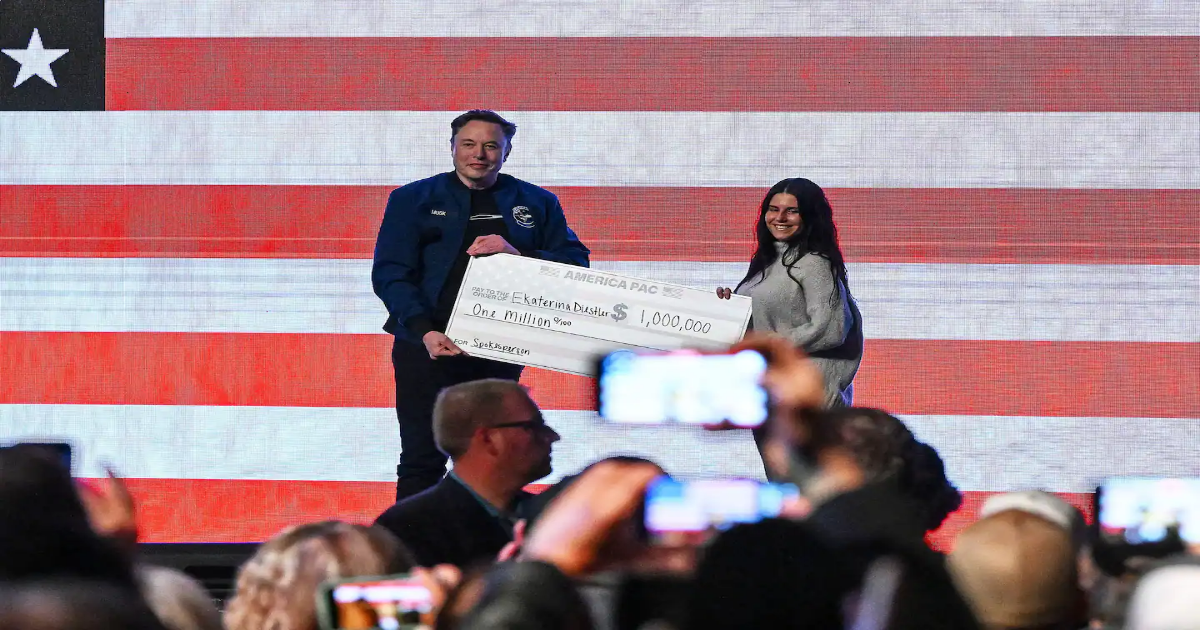The most expensive judicial battle in U.S. history is unfolding in Wisconsin, as Tuesday’s election for a seat on the swing state’s Supreme Court will determine whether the court retains its liberal majority.
The race has drawn more than $90 million in funding — including, notably, some $20 million from President Donald Trump’s billionaire ally Elon Musk and groups affiliated with him — as it has turned into a proxy war over the president’s agenda.
Here’s what to know about the election.
Susan Crawford, a liberal Dane County judge who served in top roles under a Democratic governor, is facing off against Brad Schimel, a conservative Waukesha County judge and former Republican state attorney general.
Crawford is endorsed by four current state Supreme Court justices, Wisconsin’s Democratic Party and former president Barack Obama. Donors to the state’s Democratic Party, which has transferred funds to Crawford’s campaign, include investor and liberal philanthropist George Soros, Illinois Gov. JB Pritzker (D) and LinkedIn founder Reid Hoffman, according to campaign finance reports.
Schimel also has high-profile backers. Trump recently endorsed Schimel and, in an unusual intervention, urged voters in a conference call to back Schimel, saying the race will have an “outsized impact on the future of the country.”
Donald Trump Jr. held a rally to drum up support for Schimel. Musk hosted Schimel for an audio live stream on the billionaire’s social media platform, X, in which Musk said that he got involved in the race over worries that the court’s liberal majority could eventually redraw the state’s congressional districts to help Democrats.
Crawford and Schimel, who faced each other in a debate on March 12, have each sought to paint the other as too partisan to serve on the court, according to Wisconsin Public Radio. Crawford accused Schimel of paying “lip service” to impartiality and taking positions “based on political consideration.” Schimel said that on the bench he operates like a baseball umpire: “I’m not rooting for any team.”
The race has garnered national attention as Trump faces his first major test with swing-state voters since securing a second term in November.
The Wisconsin Supreme Court will determine the future of abortion rights in the state and is considering a case on an 1849 law that has been broadly viewed as banning nearly all abortions, along with one that asks whether the state’s constitution guarantees a right to abortion.
Other major issues that could end up in front of the court include the union rights of public employees and redrawing a congressional map that has given Republicans six of the state’s eight seats.
A lawsuit involving Musk’s electric vehicle company Tesla could also eventually end up at the Wisconsin Supreme Court. In January, Tesla sued the state over a law that prevents it from opening dealerships and selling cars directly to customers.
On Sunday evening, the world’s richest man was in Wisconsin to hand out $1 million checks to two Wisconsin voters in an effort to help conservatives win the election.
Earlier that day, the Wisconsin Supreme Court denied a request from state Attorney General Josh Kaul (D) to stop Musk’s giveaway on the grounds that it violated an anti-bribery law.
Musk’s strategy mirrors the one he deployed during the presidential election last year, when he spent at least $288 million to support Trump’s presidential bid. As with that effort, Musk’s America PAC paid registered voters $100 each for signing petitions and sharing their contact information.
Musk and his team have defended the payments, framing them as rewards for signing the petitions and acting as spokespeople rather than as compensation for votes. He announced Sunday a new plan to give $20 to residents who took pictures over the next two days holding photos of Schimel.
Musk initially said Sunday’s event and prize money would be “in appreciation” for early voters, but after concerns raised by legal experts, he deleted his original post and reframed it as an event for registered voters who signed a petition against activist judges.
Democrats have sought to counter his influence by hosting “The People v. Musk” town halls and deploying a digital ad campaign on the race, which described him as a “power-hungry billionaire” who believes he is “above the law.”
